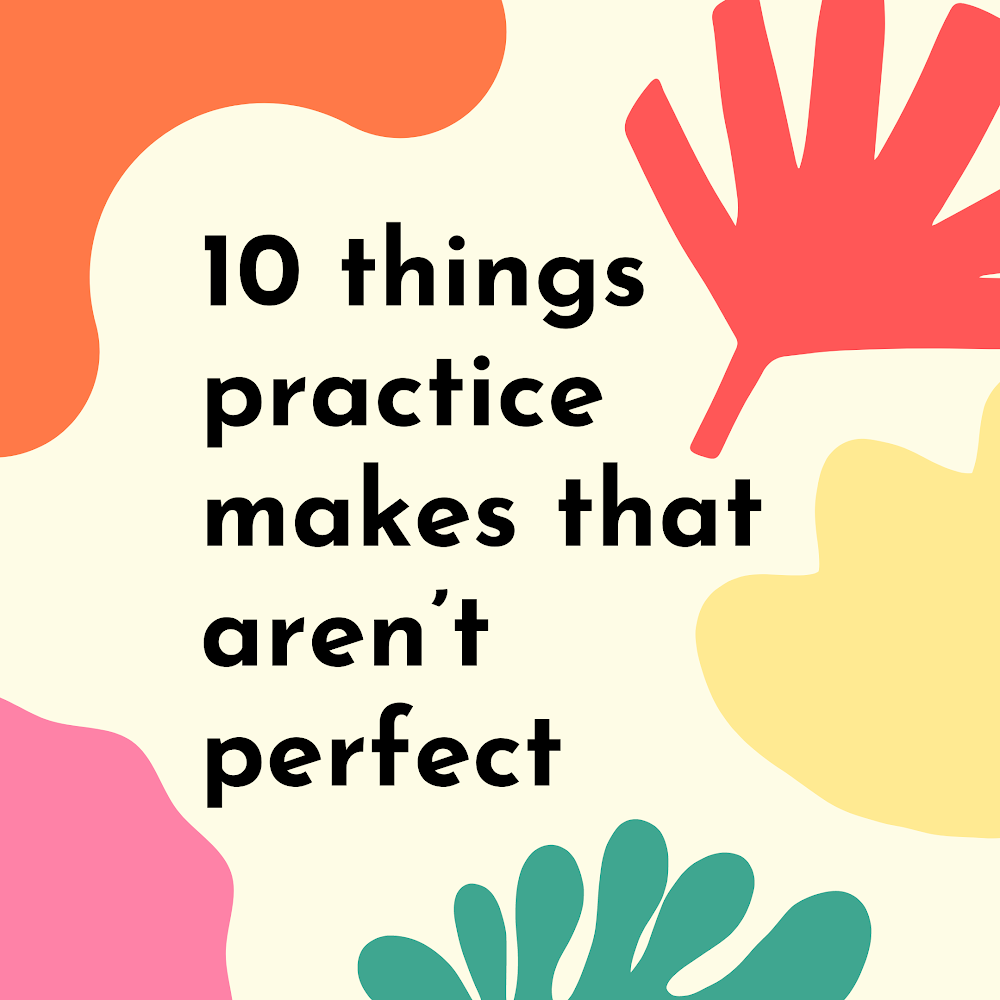The Joy Menu #3: What Practice Makes
Your author—bucking his own self-set deadline—uses his irresponsibility to reflect upon a childhood of putting off practicing his cello, and how it’s taught him something about creating as an adult.
Welcome to The Joy Menu. This is issue #3.
What is this? It’s a newsletter—neither news nor letter. An invitation to take a step away from the deluge of life and think about creativity for a few minutes.
Hi, friends.
Today I’m thinking about practice, which, in my limited experience, has never made anything perfect.
When I started this newsletter three weeks ago (remember?), I set up it up with a few goals in mind:
To delve with honesty and vulnerability into the creative challenges which have defined my life;
To do so with the hope that sharing these challenges—and how I’m working on understanding/overcoming them—would be of use to others;
And to give myself the structure and support to practice sharing in this way.
A deadline. An audience. A weekly, structured practice.
Today, I rebelled against my own deadline. Which is why you’re receiving these words deep into the evening.
Oops.
I hope you find a place for this in your evening routine, or read it tomorrow on Yom Kippur and think of me, hungry, repenting for my (very few) sins.
And if you like this delivery time better, let me know. (I’ll probably rebel against that, too.)
Onward to creative joy,
— Joey
What Practice Makes
As a child, I played the cello. It was a choice and a privilege. My parents spent an absurd amount of money, relative to what they earned at that time, to allow me to rent an instrument (and later buy one), take weekly private lessons (with a local symphony cellist), and play in all manner of nearby and regional youth symphony orchestras (to which they drove me, and far).
The only requirement I had in return was to practice.
It does not need to be stated how little enthusiasm most kids have for practice. I was no different.
In my house, we weren’t allowed to watch TV until we’d all practiced our instruments (myself, the cello; my sister, the viola; my brother, the violin); which is to say, in my house, we didn’t get to watch much TV.
And on the days when the practice fairies aligned, it was always by the skin of our teeth that all three of us completed the required (grueling) one hour before we got to sit in front of the screen for a (short) taste of delicious mind-numbing comercial pleasure. (It was short because by the time we all managed to practice it was almost always nearly time for bed.)
It wasn’t that I didn’t love playing the cello. I did. I loved how it sounded, I loved the way it trained my ear, I loved the insight it gave me into the rarified world of music; I loved that it set me apart from my peers and gave me access to an entire (if off-beat) social world.
I just didn’t like practicing. At all.
*
Needless to say, I did not become a professional cellist. As with most things, at a certain point I realized my skill had plateaued as had my pleasure; if I wasn’t compelled to practice for five hours a day (forget about TV), my talent would no longer carry me. It was time to play or to get off the...cello chair.
I got off.
Now, looking back on those years of practice-resistance, I’m prone to consider it in relation to my current resistance to build (and maintain) a daily writing practice.
I also love writing. I love how it trains my mind, and my sensibility. I love where it takes me, how it defines me. And it has given me access to friends, loves, and colleagues the world over, who have enriched my entire (if off-beat) life.
And yet, truth told, most days...I also hate my daily writing practice.
The difference between practicing the cello as a boy, and practicing writing as an adult are these:
Now I can watch TV before I write—or even during (and the TV is an endless stream from every device).
Now I have no excuse other than asking myself if I want to be a writer who writes, or a writer who doesn’t write.
Now I am much more aware of death, and the subsequent awareness that this is all the time I have—to make art, to create, to enjoy the feelings both give me.
Now I am better at pushing myself through discomfort and into the enriching (if initially uncomfortable) terrain of creation.
Which doesn’t mean it’s easy, or that I always succeed.
But it does mean I understand, better, that it’s not an imposition, or a burden. It’s a choice; and I can choose to do it. Every day.
And then I can watch TV.
10 Things Practice Makes That Aren’t Perfect

A time filler between waking up and Netflix
A better habit than biting your nails
An efficient use for extra sketch pads and pencils
A regular check to see if your guitar is in tune
A warm-up for when grandma visits
A solid technique for avoiding chores
A “healthy” task to help put off the gym
A children’s disciplinary alternative to spanking
A effective way to ruin a hobby
A thing done to aid in intermittent fasting
That’s all for now.
If you enjoyed this, share it with someone you know, who doesn’t know me (yet!).
And remember: I appreciate you, whether you practice or not.
Until next week,
— J.
Questions? Comments? Commissions? Puppies? Respond directly to this email.



